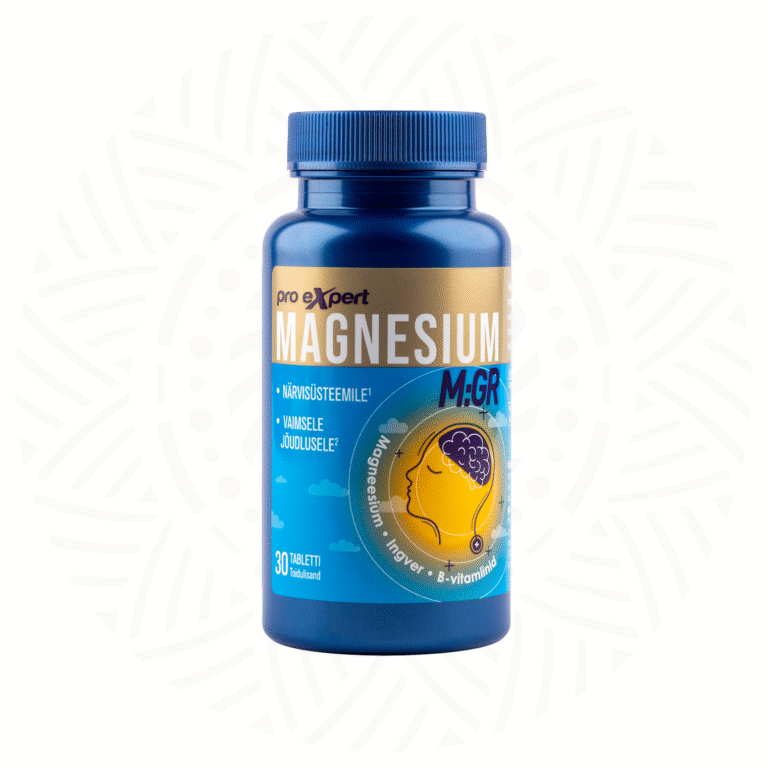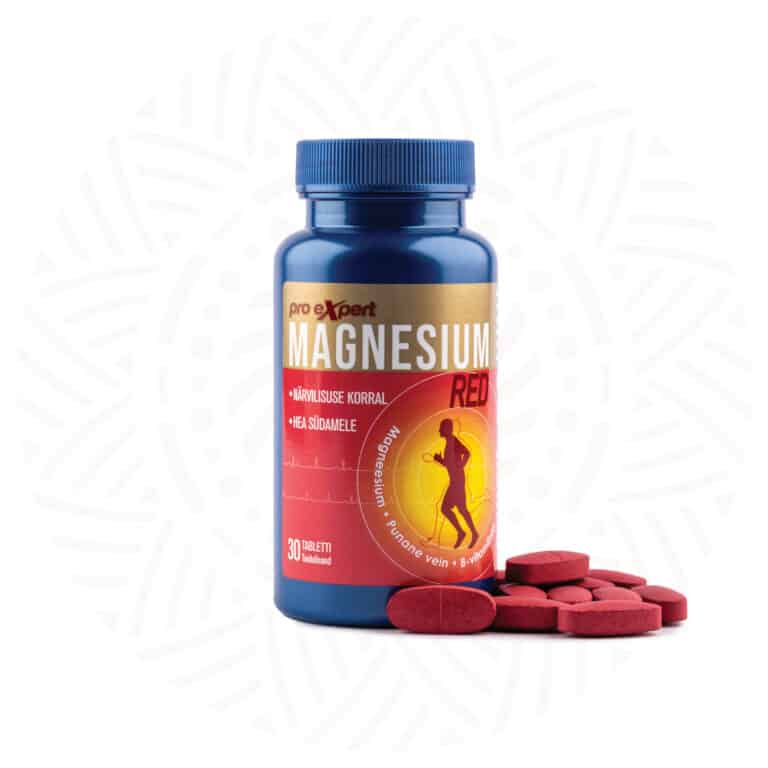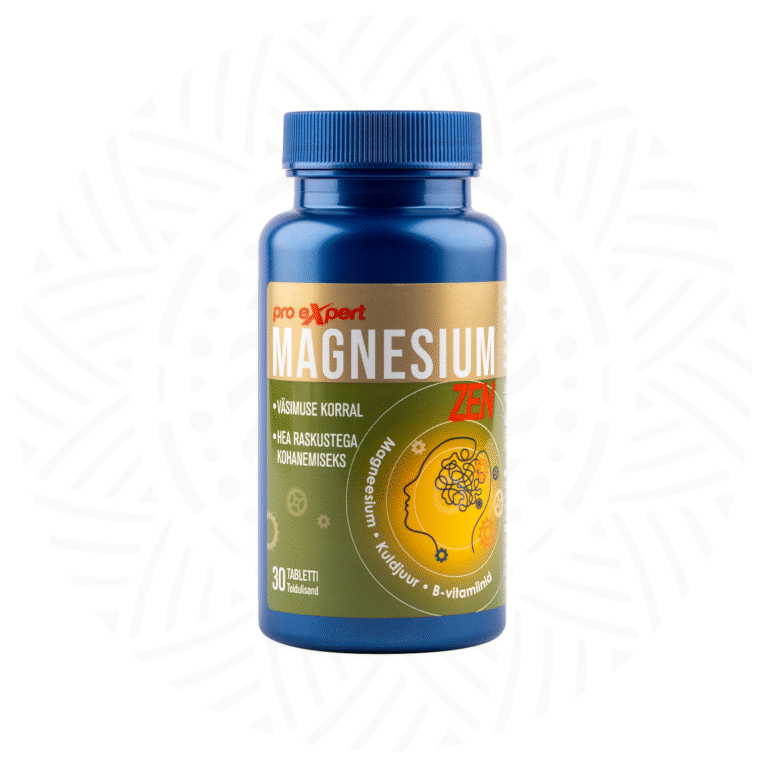Magnesium deficiency in the body is one of the most common mineral deficiencies worldwide, affecting everyone from athletes to office workers. Magnesium deficiency can cause a variety of health issues, including leg cramps, anxiety, insomnia, fatigue, digestive problems, heart issues, and frequent headaches.
Now that you understand how important magnesium is, we’ll provide you with a detailed guide on how to choose a magnesium supplement to prevent and alleviate various symptoms.
Why do we need magnesium?
Magnesium is a critical mineral that plays a part in most metabolic functions. Magnesium is involved in over 300 vital enzymatic reactions, including the transmission of genetic information, absorption of vitamins and minerals, and activation of amino acids. Magnesium aids in energy production, regulates blood pressure, and plays a significant role in muscle and nerve function.
What are the different forms of magnesium?
There are various forms of magnesium – magnesium oxide, magnesium citrate, magnesium glycinate, etc. Each form of magnesium has specific properties and benefits. Therefore, it is important to choose the right form of magnesium based on your individual needs and symptoms, and to monitor the dosage. Only a treatment course of sufficient length will yield the desired result.
Which magnesium should you choose for headaches?
If headaches are a frequent issue, magnesium supplementation might be the solution. Studies show that magnesium glycinate is ideal for alleviating headaches and migraines, as it crosses the blood-brain barrier and calms the nervous system.
Quick recovery from headaches is crucial, and therefore, in addition to magnesium, ginger is also recommended. Studies have shown that ginger makes headache treatment up to 40% more effective, speeding up recovery. Additionally, ginger has an effective impact on alleviating nausea and vomiting, which may accompany severe headaches.
It is worth knowing that people suffering from migraines often have low magnesium levels in their blood. Therefore, regular consumption of magnesium and ginger for at least 3 to 6 months helps effectively reduce the frequency of severe headache episodes.
Which magnesium should you choose for leg cramps?
Magnesium plays an important role in muscle function, oxygen utilization, and processes that affect electrolyte balance. Magnesium is essential for protein synthesis, muscle development, and relaxation.
For leg cramps, it is recommended to consume magnesium, as it helps relax muscles and prevent involuntary contractions – cramps. Magnesium citrate is effective for leg cramps, as it is easily absorbed by the body and acts quickly.
To achieve athletic results, it is advisable to take magnesium citrate with zinc. Zinc is an essential mineral needed for normal muscle performance and development. Consuming zinc with magnesium helps effectively reduce muscle and leg cramps and supports muscle health and growth.
It is important to remember that correcting a magnesium deficiency completely requires 3 to 6 months from the disappearance of symptoms.
Which magnesium should you choose for fatigue?
If you constantly feel tired, this could be due to magnesium deficiency. Magnesium is an important mineral that helps regulate energy levels and the nervous system, thereby reducing fatigue and exhaustion.
If you’re looking for the best form of magnesium to alleviate fatigue and exhaustion, choose magnesium citrate or magnesium glycinate. These forms of magnesium are well absorbed and provide quick energy.
For the best results, it is advisable to combine magnesium with Rhodiola. Rhodiola is an adaptogenic plant – it helps the body better cope with stress and reduces fatigue and exhaustion. Rhodiola contains a lot of active compounds that have been linked to increased muscle oxygen consumption, thereby improving performance and accelerating recovery. Therefore, Rhodiola combined with magnesium is the best combination for relieving fatigue.
However, it should be noted that magnesium supplementation should continue for at least 3 to 6 months to overcome fatigue and fill your days with energy.
Which magnesium should you choose for heart problems?
Magnesium plays an important role in regulating body processes. One of these processes is controlling heart function and rhythm, where magnesium, along with potassium and calcium, ensures smooth nerve impulse transmission. Magnesium deficiency increases the risk of heart arrhythmias, as muscle cells cannot relax quickly enough.
For heart arrhythmias, it is recommended to take magnesium citrate regularly to ensure a steady heartbeat. Studies have shown that magnesium plays a crucial role in heart function, and low magnesium levels in the body can increase the occurrence of heart arrhythmias.
It is important to know that regular consumption of magnesium citrate also lowers blood pressure, as it relaxes the muscle cells of blood vessels. For high blood pressure, take magnesium citrate regularly, as diuretics increase magnesium excretion, which can quickly lead to severe magnesium deficiency.
Cardiologists recommend taking antioxidants along with magnesium to support heart health. Therefore, choose magnesium that contains antioxidants – for example, red wine extract. Red wine extract contains polyphenols, particularly resveratrol, which helps reduce the risk of heart disease by reducing inflammation and oxidative stress in the body.
Choose magnesium wisely and stay healthy!







